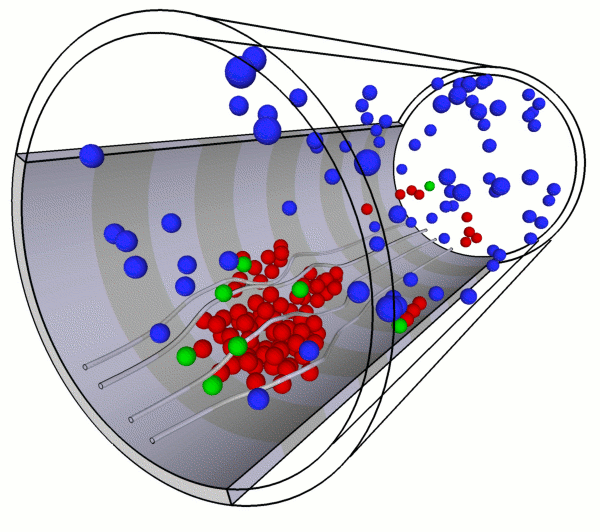THE CRUNCH GROUP
Division of Applied Mathematics
Brown University
Providence, RI 02912, USA




RESEARCH
Research Areas:
Multiscale Simulation of Arterial Blood FlowThe human vascular system is very complex, with five liters of blood traveling through the vascular network of 60,000 miles in just one minute. Interactions of blood ow in the human body occur between di erent scales, in which the large-scale flow features are being coupled to cellular and sub-cellular biology, or at similar scales in different regions of the vascular system. We propose to develop and validate an integrated model of the cerebrovasculature characterized by three distinct spatial length scales:
More comprehensively, we propose to separate the simulations into two regimes: The first one involves all arteries that can be accurately imaged clinically at the present time, whereas the second regime involves the “subpixel” dynamics (MeN and MiN). Specifically, we focus on the following projects:
Ultrascale parallel paradigms and High-order Spectral/hp Element Methods
Stochastic Simulations and Uncertainty Quantification
Data Assimilation & Low-Dimensional Modeling
|